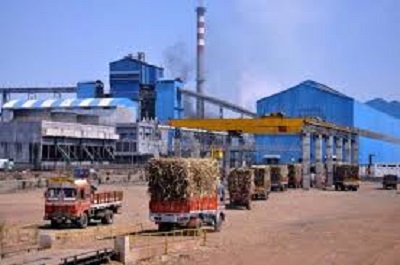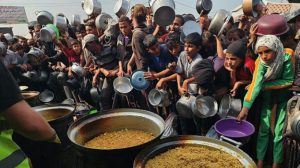
investment
(Photo: lakshmisugar)" width="300" height="198" /> Industry to get a boost from new investment. (Photo: lakshmisugar)Jakarta, 26 Safar 1436/19 December 2014 (MINA) – The country’s sugar industry expects to see a major boost from sizeable new investment as 10 sugar mills are set to be built in the next few years, a move that will help the world’s top sugar importer achieve self-sufficiency.
The self-sufficiency goal revealed earlier by Agriculture Minister Amran Sulaiman will apply to some staple foods such as rice, corn, soybean and sugar.
Expert staff to the trade minister Ardiansyah Parman said Tuesday that each sugar mill might need between Rp 1.7 trillion (US$133.6 million) and Rp 2 trillion in investment, The Jakarta Post quoted Mi’raj Islamic News Agency (MINA) as reporting on Thursday.
“Most of the mills will be located in Java, but some may be set up outside Java,” Ardiansyah said, adding that the mills would be built by state-owned plantation firms as well as private investors.
Also Read: Saudi Arabia Wins Bid to Host World Expo 2030
The construction of a number of new mills is necessary in the world’s second-biggest sugar exporter as existing mills, of which some date back to the colonial period, cannot cope with the constant rise in domestic demand, according to analysts.
Ardiansyah did not elaborate on the firms that would execute the investment plan, but said that two firms — sugar refiners PT Sugar Labinta and PT Sukses Mantap Sejahtera — were constructing their mills in Lamongan, East Java and in Dompu, West Nusa Tenggara (NTB), respectively, with a capacity of around 5,000 tons of cane per day.
Another agriculture group, PT Tunas Baru Lampung, revealed its plan earlier to build a $103 million sugar mill at an unspecified location, Reuters reported.
According to Ardiansyah, apart from the development of the new facilities by investors, the government may also expand sugarcane plantations to meet surging demand for raw materials, using the 260,000 hectares managed by state-owned enterprises.
Also Read: 148 Products from Indonesia Promoted at Sarawat Superstore Jeddah
Similar to the situation faced by the mills, sugarcane cultivation has also struggled due to a lack of investment in past decades. As sugarcane output cannot cope with the fast-surging refining capacities, refiners now depend largely on imports, which have a quota issued on an annual basis.
The government is prepared to allow the importation of 2.8 million tons of raw sugar next year to fulfill demand from local refiners. That will be similar to the 2.8 million tons permitted by the government, of which delivery has reached 2.66 million tons as of Tuesday, according to the Trade Ministry.
The Trade Ministry’s director general for foreign trade, Partogi Pangaribuan, said that to reduce the potential leakage of refined sugar, processed from the imported raw sugar, in the end-consumer market, the ministry would collaborate with the Cooperatives and Small and Medium Enterprises Ministry in channeling the commodity to small and medium-scale industrial users. The user group may require around 400,000 tons of refined sugar a year, according to surveyor PT Sucofindo.
Refined sugar is intended mostly for the food and beverage industry. Meanwhile, households consume white sugar, made from sugarcane grown by local farmers. This new arrangement will replace the current rule, which prohibits the sale of refined sugar through distributors and sub distributors, and requires direct distribution from refiners to the food and beverage industry.(T/P009/P3)
Also Read: Packaging Industry Supports Halal Ecosystem
Mi’raj Islamic News Agency (MINA)


































 Mina Indonesia
Mina Indonesia Mina Arabic
Mina Arabic